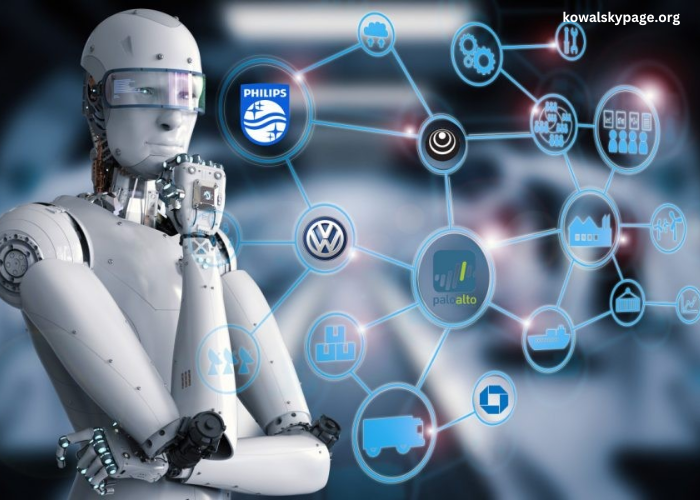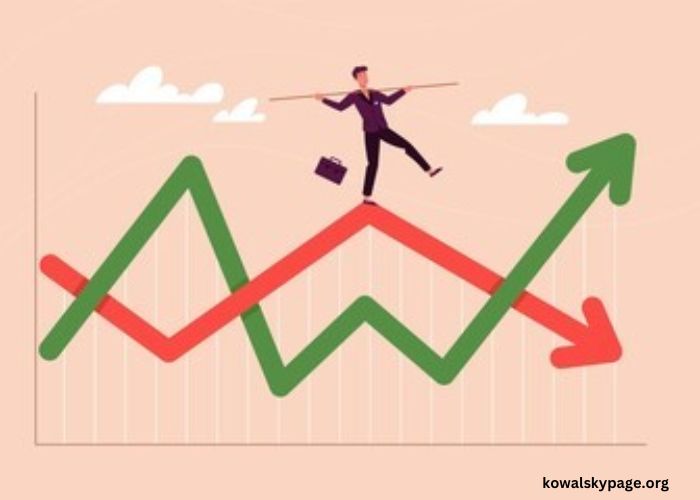As we approach the middle of the decade, the rapid evolution of technology continues to shape every aspect of our lives—from how we work and communicate to how we approach sustainability and security. The year 2025 promises to be a turning point, where emerging technologies will transition from experimental to integral parts of daily life. In this article, we will explore the cutting-edge technology trends expected to dominate the landscape in 2025, highlighting how they will reshape industries and society.
1. Artificial Intelligence (AI) and Machine Learning 2.0
Artificial Intelligence (AI) has been a hot topic for years, but by 2025, we will see its most profound transformation yet. AI is expected to move beyond narrow task-specific functions into more generalized, autonomous systems capable of learning and making decisions with minimal human input. AI models like GPT-4 have already shown impressive capabilities in natural language processing, and in 2025, these models will likely evolve to interact in real-time with businesses, consumers, and other AI systems seamlessly.
In addition, machine learning algorithms will become much more advanced, capable of self-improvement and more efficient learning from smaller data sets. Expect AI to be more deeply embedded in industries such as healthcare, finance, manufacturing, and customer service. Personalized experiences, predictive analytics, and decision-making automation will be more integrated into both consumer-facing applications and B2B solutions.
2. Quantum Computing Breakthroughs
Quantum computing, long seen as a futuristic technology, is moving closer to becoming a reality with more substantial investments from tech giants, governments, and research institutions. In 2025, we could witness practical applications of quantum computers that offer exponential processing power, enabling advances in fields like cryptography, complex simulations, and drug development.
Unlike traditional computers, quantum machines harness quantum bits (qubits), which can exist in multiple states simultaneously, unlocking computational power that classical computers cannot replicate. Quantum computing has the potential to solve problems that were previously deemed unsolvable, and by 2025, industries like aerospace, energy, and pharmaceuticals will be exploring ways to use quantum systems for optimization, material design, and precision medicine.
3. 5G and the Emergence of 6G Networks
The rollout of 5G networks will continue through 2025, facilitating faster download speeds, lower latency, and greater connectivity. However, it’s not just about faster mobile internet; the full potential of 5G will be realized as it connects millions of IoT (Internet of Things) devices in real-time, transforming industries such as logistics, transportation, and healthcare.
In addition, research into 6G is already underway. Expected to launch sometime in the 2030s, 6G networks will promise speeds up to 100 times faster than 5G, enabling not only faster communication but also breakthroughs in areas such as immersive experiences (augmented and virtual reality), real-time AI deployment, and smart city infrastructure. By 2025, groundwork for 6G will likely take shape with early tests and foundational technologies setting the stage for the next generation of mobile networks.
4. Extended Reality (XR): Augmented Reality (AR) and Virtual Reality (VR)
Extended Reality (XR), which encompasses both AR and VR, is expected to become increasingly mainstream in 2025. The distinction between these technologies will continue to blur, with mixed-reality devices offering immersive, hybrid experiences. Companies will use XR to create virtual offices, immersive training environments, and interactive entertainment.
In 2025, we may see the launch of more powerful and affordable AR glasses that seamlessly blend digital information with the real world. Meanwhile, VR headsets will become lighter and more comfortable, with richer graphics and sensory inputs. Education, healthcare, gaming, and retail will all experience massive transformations thanks to XR. For example, medical professionals may use XR for virtual surgeries and treatment simulations, while retailers may offer virtual shopping experiences.
5. Blockchain and Decentralized Finance (DeFi)
Blockchain technology, which underpins cryptocurrencies like Bitcoin, will continue to mature in 2025, expanding its reach far beyond digital currencies. Blockchain’s decentralized nature provides enhanced security, transparency, and immutability, which is particularly beneficial for industries such as supply chain management, real estate, and healthcare.
In particular, Decentralized Finance (DeFi) will gain traction, revolutionizing financial systems by removing intermediaries and enabling peer-to-peer financial transactions. Smart contracts, decentralized lending, and tokenized assets will form the backbone of this new financial landscape. Traditional banks and financial institutions may begin to integrate blockchain solutions to streamline operations, improve security, and increase trust with customers.
6. Autonomous Systems: Self-Driving Cars and Drones
Self-driving technology will continue to evolve, with autonomous vehicles becoming a more common sight on the roads by 2025. While full autonomy (Level 5) may not yet be achievable across all vehicles, we will likely see widespread deployment of autonomous delivery systems, trucks, and ride-sharing vehicles in select cities.
Drones, both in the logistics and consumer sectors, will also become more prevalent. Drones will revolutionize package delivery, surveillance, agriculture, and even entertainment. By 2025, drone-based services will likely be commonplace, with fleets of drones performing tasks like precision farming, real-time aerial photography, and rapid parcel deliveries in urban areas.
7. Sustainable Technologies: Green Tech and Climate Solutions
Sustainability will continue to be a core focus of technological innovation in 2025, with new solutions emerging to combat climate change and promote environmental stewardship. Solar energy technology will advance with more efficient solar panels and energy storage systems, making renewable energy more accessible and affordable. Additionally, electric vehicles (EVs) will become the norm, with more automakers introducing new, longer-range EV models.
Carbon capture technology will become more commercially viable, as companies work to reduce the amount of CO2 in the atmosphere. Furthermore, smart grids, powered by AI, will optimize the use and distribution of energy, making cities and industries more energy-efficient. By 2025, companies that embrace green technologies will not only help protect the environment but also find new business opportunities in a rapidly evolving green economy.
8. Biotechnology and Personalized Medicine
By 2025, biotechnology will continue to drive innovation in healthcare, offering breakthroughs that change how we approach medicine and health. Precision medicine will become a reality for more individuals, thanks to the combination of AI and genetic research. Medical treatments tailored to a person’s genetic profile will allow for more effective therapies, fewer side effects, and better outcomes.
CRISPR gene-editing technology will continue to advance, with its potential to cure genetic disorders and even prevent future diseases. Additionally, wearable health devices will become more sophisticated, providing real-time health monitoring that allows for early diagnosis and personalized care.
Conclusion
The technological advancements expected in 2025 will usher in an era where innovation is truly transformative, reshaping industries and creating new opportunities for businesses and individuals alike. From the rise of AI and quantum computing to the expansion of 5G, XR, and sustainable technologies, 2025 promises to be a watershed year for technology. Embracing these trends will not only enable businesses to stay competitive but will also shape the way we interact with the world around us in profound ways. As we look ahead, one thing is clear: technology will continue to drive unprecedented change in the years to come.





